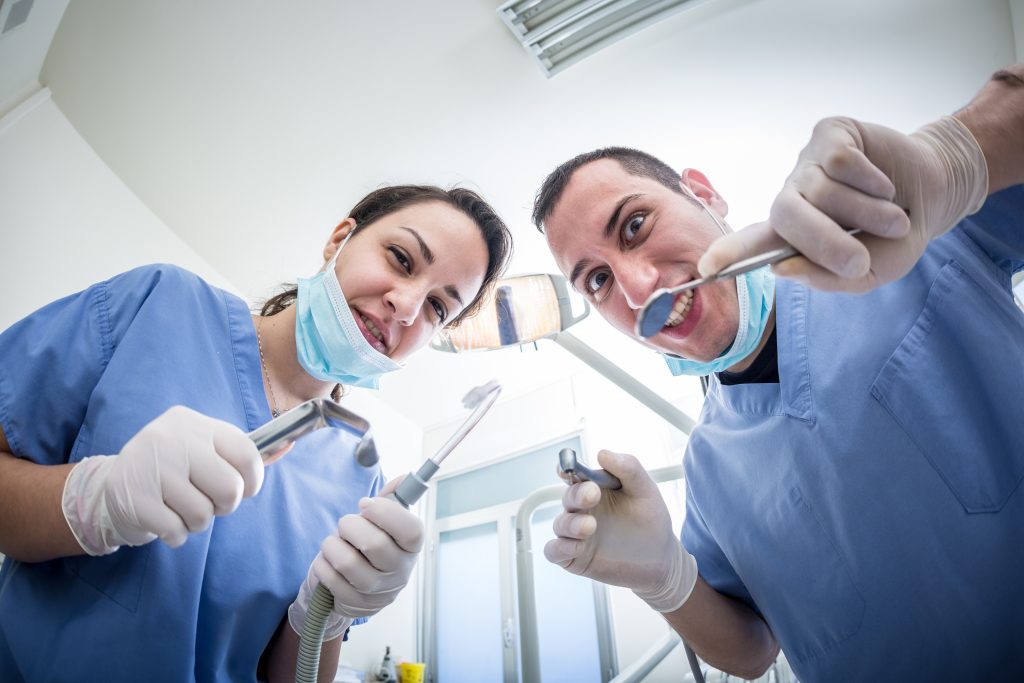
Odontophobia or Dentophobia
You know if you have it…a fear of going to the dentist.
It’s the smell of the office.
It’s the sound of the drill.
It’s the fear that it’s going to hurt.
If you’ve put off having dental work done, it’s the embarrassment of having to admit you’ve let your teeth go for however long…and the fear you will be judged or lectured to and feel humiliated.
It’s Different for Abuse Survivors
Psychotherapists know that for survivors of childhood physical or sexual abuse, it’s a different experience. Having to lie down, and have objects placed in one’s mouth for X-rays or to make dental impressions can feel impossible to cope with. It can invoke feelings of dread, anxiety, and trigger sheer panic. They may be afraid that they will “lose it” in the dental chair, and everyone is going to think they’re not normal.
Because, come on, who’s afraid of the dentist?
Most People Are Afraid of the Dentist
Actually, over 75% of people have some dental fear, and 5-10% of those individuals have a true dental phobia, meaning their level of fear is so severe they avoid seeing a dentist no matter what the cost to their dental health. So whether you just don’t like going to the dentist, or you refuse to go altogether, you’re not alone!
The Key to a Good Dental Visit: Your Dentist
You have to communicate with your dentist and explain that you experience some (or a lot of) anxiety about dental visits, and that you need extra information, time, medication, or other assistance in managing dental procedures. If they laugh or minimize your concerns, then you immediately find a different dentist.
Your dentist should be the first person who takes your need for information, gentle explanation, and help in managing the dental visit seriously. If you have this kind of dentist, you will be able to tell him or her what you want and don’t want, what you can handle and can’t handle, what you need them to do and need for them to never do during a visit.
A Good Dentist Makes a Huge Difference
I had some really bad experiences with dentists when I was a child, and it was important to me that I be able to trust that my dentist would listen to me about what I needed. I had a conversation about this with my dentist at my very first visit, and he was interested, sensitive and responsive. Because of this, I trust him, and together we make a great team in keeping my smile healthy.
It’s Not All About Your Teeth

Your teeth are important. In fact, if your teeth and gums aren’t healthy, there are a lot of other organ systems in your body that will be adversely affected. What’s even more important is that you feel whole, respected, in control, and able to allow what needs to be done for your health…it’s really about YOU.
Help for Dental Fear
There are many resources for you if you experience mild to excessive fear of visiting the dentist. I have listed some of them below, with their links. Counseling and medications can help you to lower your anxiety and help you get through a dental visit without your heart rate increasing dramatically. For the” dental phobe”, it may allow you to finally make that long-put-off dental appointment.
The best advice I can give you about your teeth is to “only floss the ones you want to keep.” The best advice I can give you about going to the dentist is “go and make friends with your dentist.” It will be one of the best things you’ve ever done.
Dr. Anita Sanz, PhD, Psychologist
Tips for abuse survivors and their dentists: click here
Dental phobia support forum: click here
Dental Fear Central website: click here
- Life Planning (5)
- Therapy (43)
- Anxiety (11)
- Depression (16)
- On The Couch (16)
- Well Being (59)
- Health (10)
- Holidays (7)
- Life Hacks (20)
- Relationships (13)
- The Big Picture (9)
